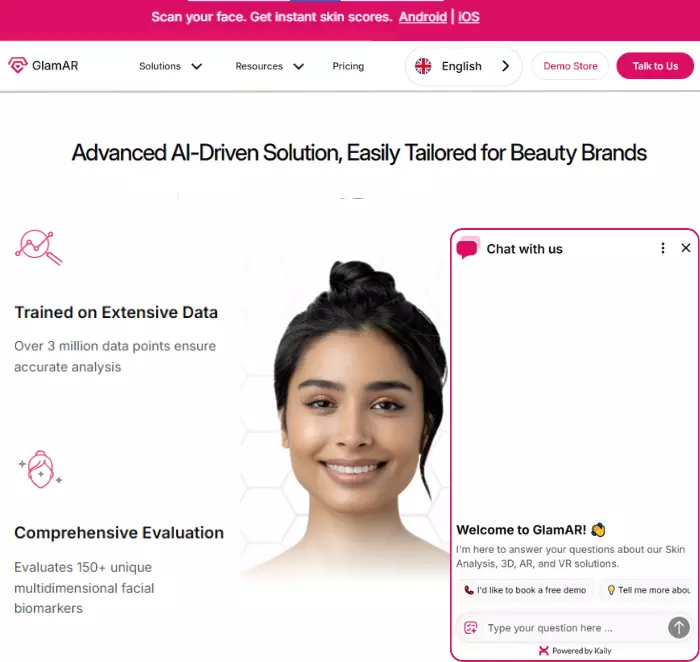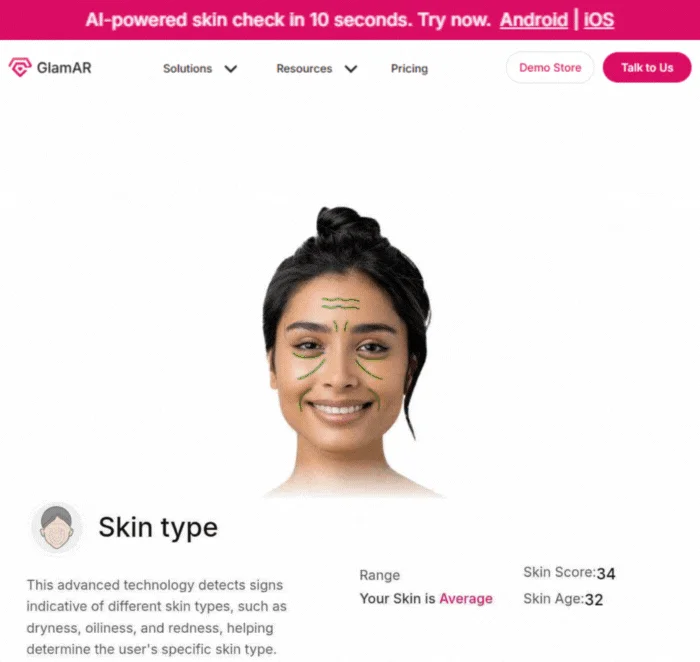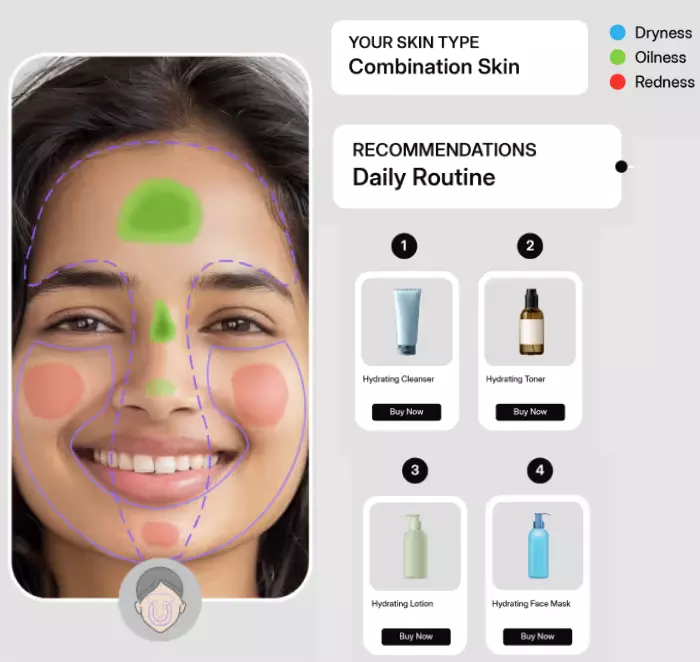GlamAR’s consumer-centric skinGPT for personalized skincare routines


AI chatbot assistance


Customized skincare routine
Future skin simulations

Frequently asked questions
SkinGPT is an advanced AI-powered chatbot. It is designed to enhance skincare and dermatology experiences. SkinGPT can function as a personal skincare assistant. It will help consumers build personalized skincare routines, understand product ingredients, and identify their skin types. Some versions of skinGPT enable virtual try-on simulations. They allow your customers to visualize product effects or treatment outcomes over time. In research and clinical settings, SkinGPT also serves as a diagnostic assistant. It can analyze skin images with multimodal language and vision models.
SkinGPT works in different ways, according to its purpose. For personalized skincare-routine: it asks your customers questions about their skin type, concerns, environment, and educates them on skincare product ingredients. In simulation-based versions of skinGPT: consumers can upload their images to see how their skin may look after product use or ageing. For diagnostic purposes, it analyzes vast datasets of their skin images and medical notes to identify conditions and suggest recommendations.
SkinGPT can offer personalized and interactive customer experiences. It helps your brand analyze consumer data to provide unique product recommendations. As a result, it increases customer satisfaction and conversion rates. Your customers can virtually “try on” products and visualize results before purchase through AI-driven simulations. SkinGPT enables your brand to gather valuable consumer insights. Thus, you can improve marketing strategies and strengthen your brand loyalty through hyper-personalized skincare solutions.
Data safety in SkinGPT depends on the specific implementation. Some skinGPT platforms have their own data privacy policy. They seek their consent to upload their photos and provide transparent terms of service. But consumers should always review the data security policies. They also need to ensure its trustworthiness before sharing sensitive skin images.
SkinGPT is not a replacement tool for professional dermatological advice. Serious or changing skin issues, such as moles, infections, or rashes, require in-person evaluation. Its diagnostic accuracy can vary, especially across underrepresented skin tones or ethnicities. The visual simulations it provides are predictive, not guaranteed, since real skin responses may differ based on genetics and environment. Consumers should also review how their uploaded data is stored. It will ensure privacy and secure handling.
SkinGPT aims to promote inclusivity with the help of diverse, representative datasets: various ethnicities, age groups, and skin conditions. It tailors responses according to your customers’ inputs, such as their skin tone, type, and age. It will ensure personalized insights for every consumer, regardless of their skin tones, skin types, and ages.














